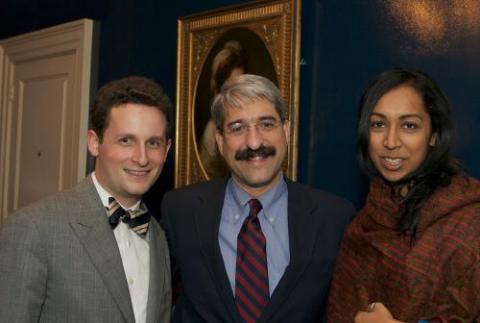Yale’s Directed Studies program, Columbia University’s Core Curriculum, and the University of Chicago’s Core Curriculum are important, many-decades-long experiments created to ensure that students at these universities experience a deep and challenging liberal arts education. These programs are models for similar courses at colleges and universities across the country, and even for programs for non-traditional students, such as the Clemente Course in the Humanities for people living in economic distress, and a component of the Bard College Prison Initiative.
In collaboration with the University of Chicago and Columbia University, Directed Studies is participating in a multi-year project to begin to assess the impact of our programs. While Directed Studies differs from the programs at Chicago and Columbia in that DS is not a required program for all Yale students, it shares with those programs an emphasis on close reading of texts in seminar settings and attention to developing critical thinking and writing. The collaboration is supported by a grant from the Teagle Foundation (http://www.teaglefoundation.org/).
One component of the collaboration is a series of discussions that were conducted among groups of students (current and former) and faculty at Yale over the course of four days, February 23–26, at the Whitney Humanities Center. The response to our invitation to join these discussions was enthusiastic: some 70 students and 21 faculty took time from the middle of the semester to take part. The resulting “focus groups” consisted of about 6–8 participants, and were hosted by Kathleen Wise and Charles Blaich from the Center of Inquiry in the Liberal Arts at Wabash College (http://www.liberalarts.wabash.edu/).
We hope these assessments will help us to better understand the short- and long-term value of our program as we prepare to move into the eighth decade of Directed Studies, and may help us highlight concrete aspects of the Directed Studies experience for the rest of Yale and beyond. Ultimately, these conversations stand to contribute to a larger national discussion about higher education, the liberal arts, and the place of intensive, text-oriented programs like DS. We look forward to sharing the findings of the Wabash interlocutors as soon as we receive their report.
